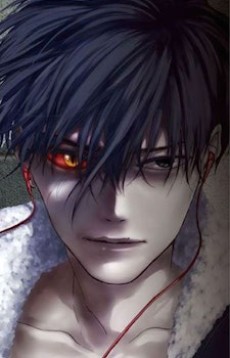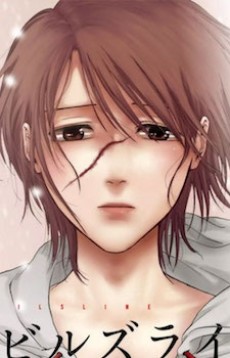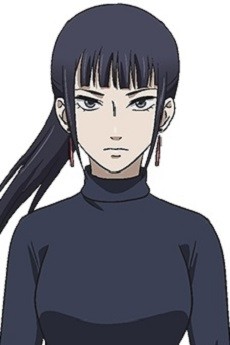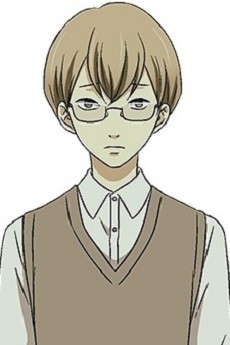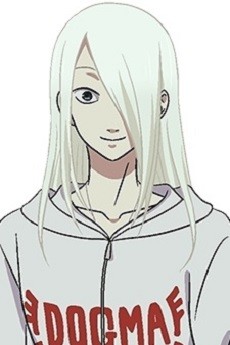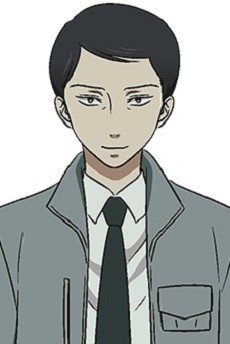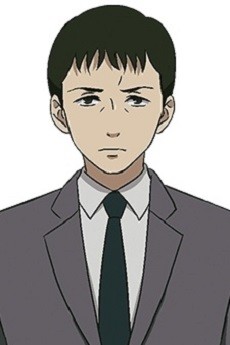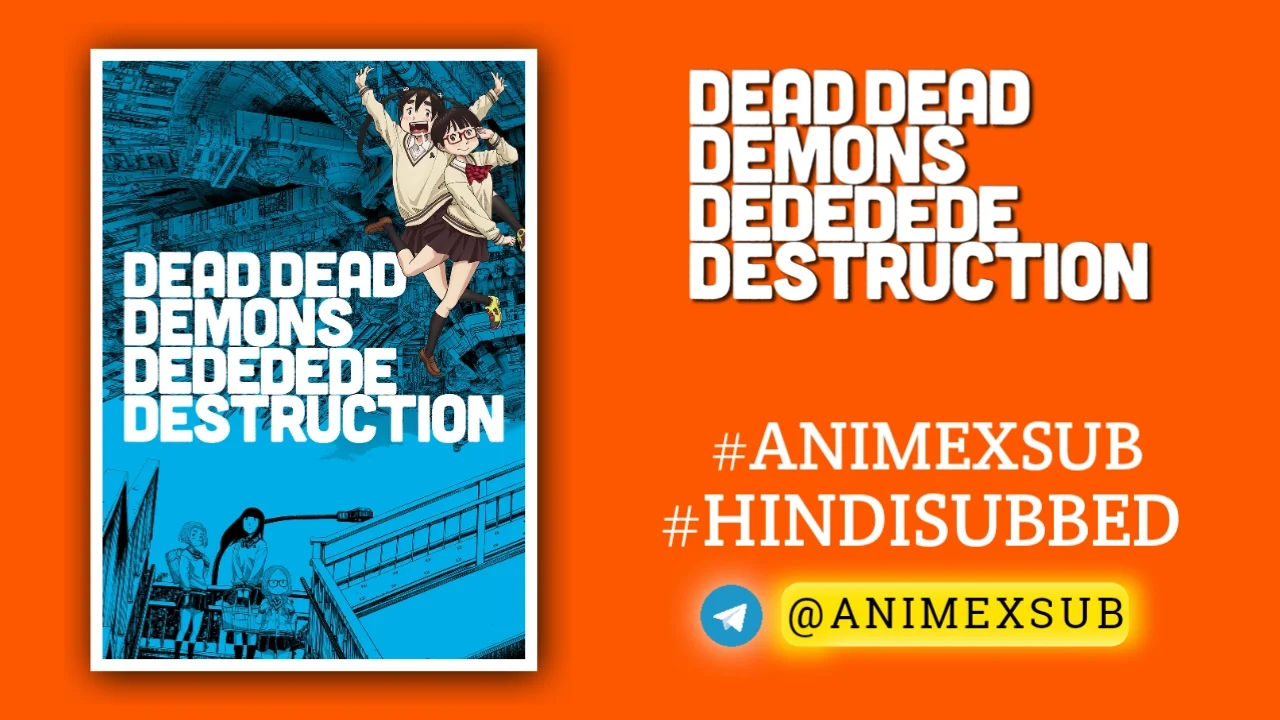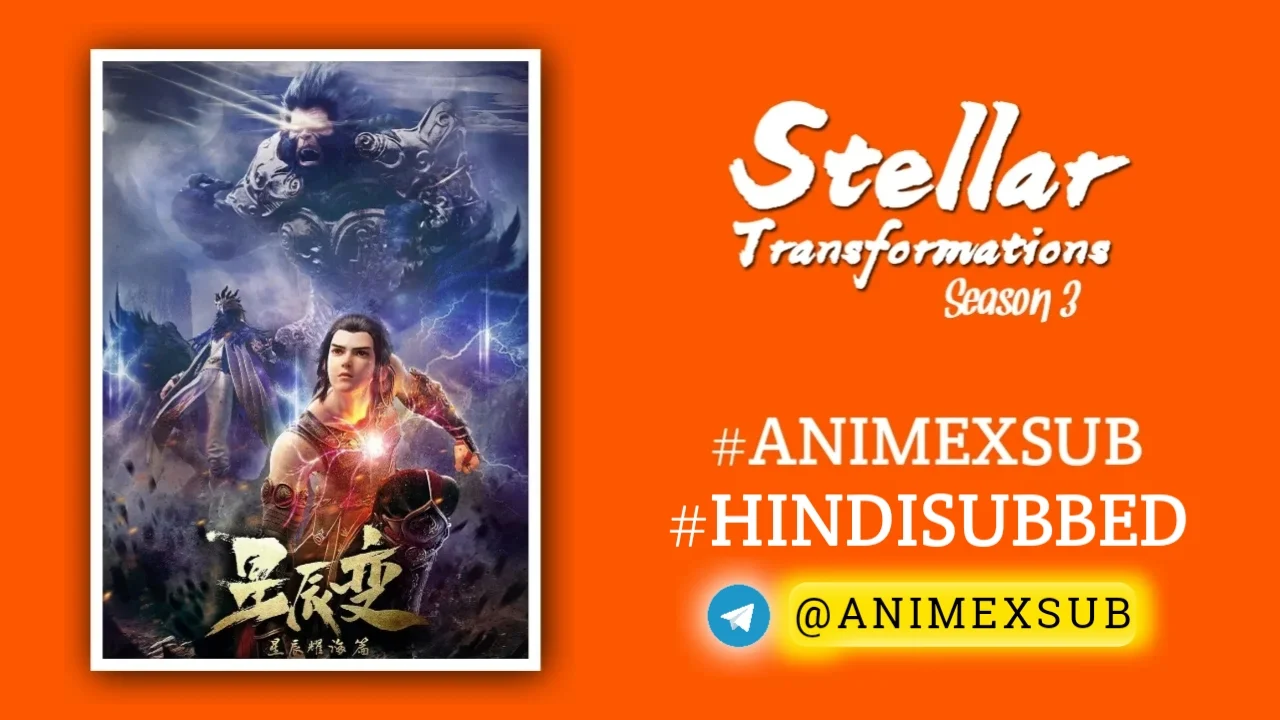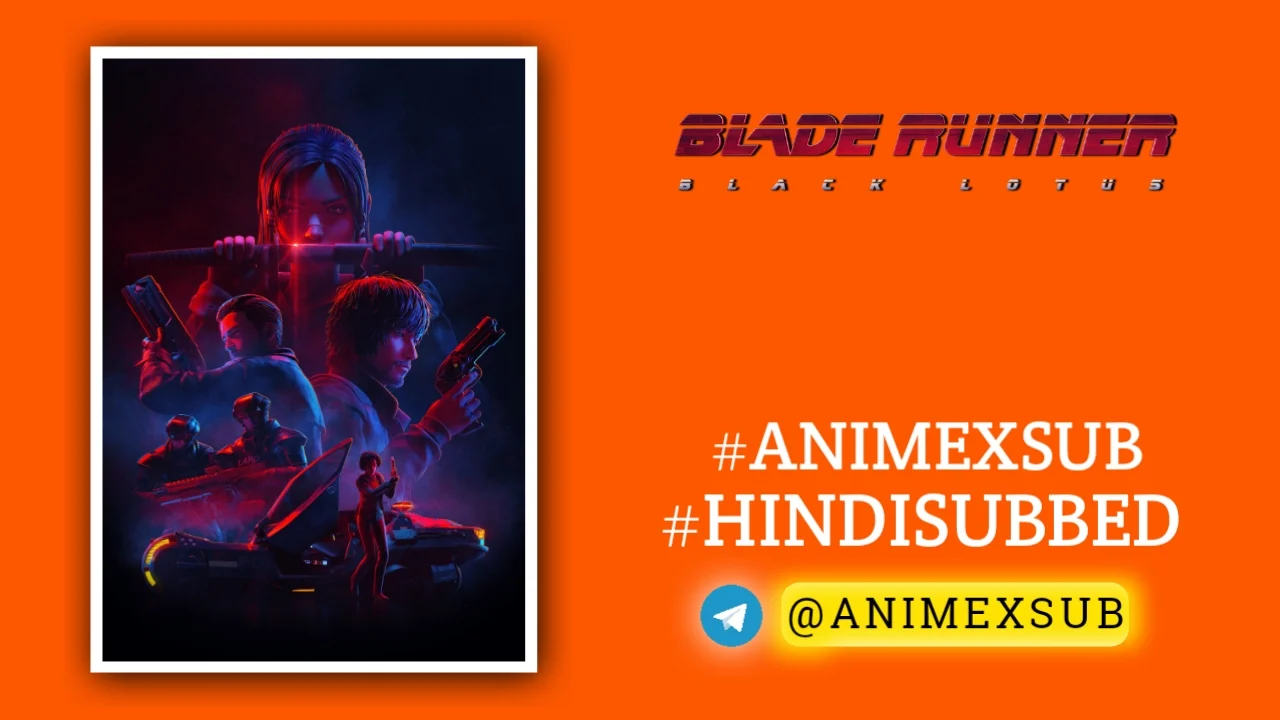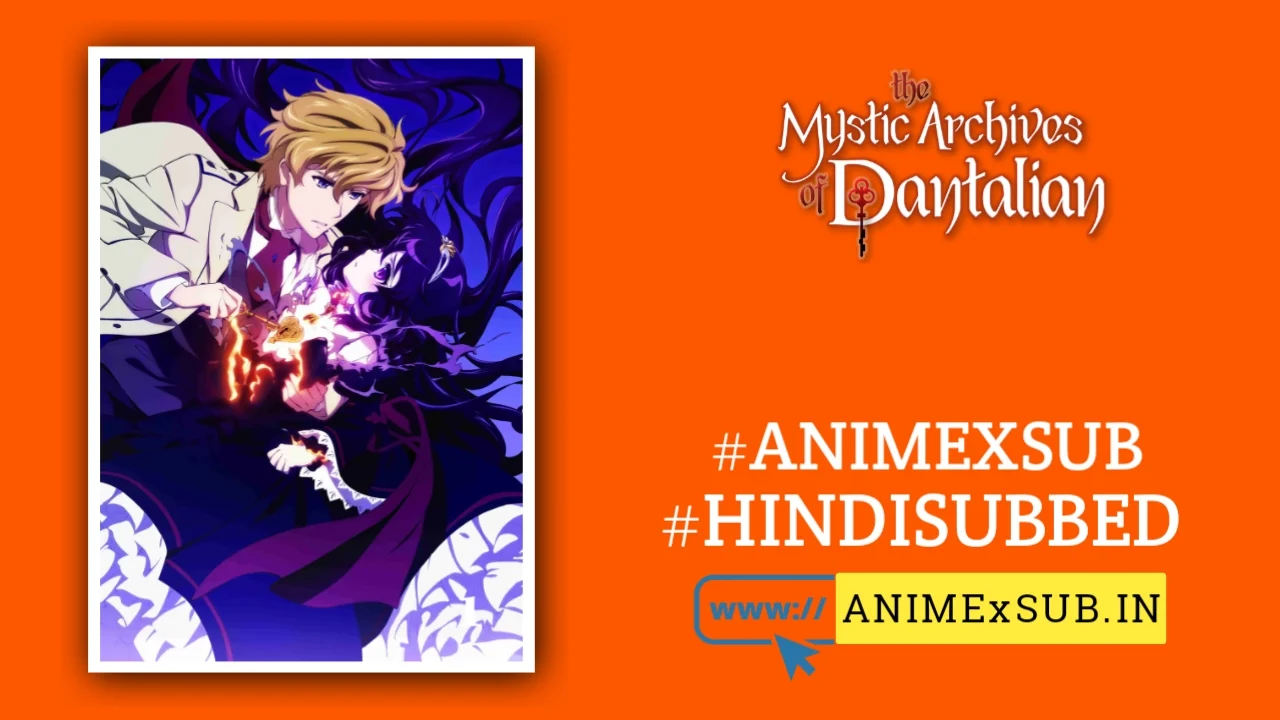
Devils Line Season 1 Hindi Subbed [12/12 | Devils’ Line Hindi Sub!!
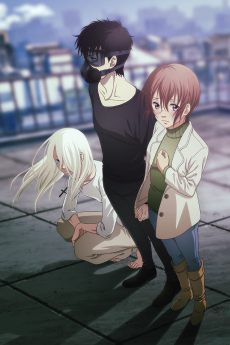
Devils' Line
Devils' LineSynopsis
Everything you thought you knew about vampires is wrong. They can walk in the daylight and holy water doesn't burn them. In fact, vampires can pass as normal humans so perfectly that even other vampires have trouble spotting them. Until they drink human blood, that is; then they transform into monstrous beasts who mindlessly rape and murder. But not all vampires are evil. The secret task force that patrols Tokyo's vampire population has several fanged operatives, including half-human Yuuki Anzai, who believes that his human heritage lets him resist his species' basest cravings. But after Yuuki rescues college student Tsukasa Taira from a vampire stalker, he realizes that he's succumbing to urges he's never felt before. (Source: Sentai Filmworks)
Watch Trailer
Characters
Devils’ Line Season 1: A Raw, Unpolished Gem in the Vampire Genre
Devils’ Line Season 1, a 12-episode anime adaptation of Ryo Hanada’s dark fantasy manga, aired in 2018 under the direction of Hideaki Nakano and production by Platinum Vision. Set in a modern Japan where vampires—referred to as “devils”—coexist covertly with humans, the series weaves a narrative that is equal parts gritty crime drama, introspective character study, and fraught romance. While it stumbles in execution at times, Devils’ Line distinguishes itself through its unflinching exploration of identity, morality, and societal prejudice, offering a vampire tale that feels both familiar and strikingly distinct. This review delves into the series’ strengths, flaws, and thematic depth, aiming to provide a fresh perspective on a show that remains underappreciated yet polarizing.
A World Where Monsters Hide in Plain Sight
The premise of Devils’ Line is deceptively simple: vampires, or devils, live among humans, indistinguishable until blood triggers their transformation into frenzied, monstrous beings. Unlike traditional vampire lore, these creatures don’t fear sunlight or holy relics, and they don’t require blood to survive—though consuming it amplifies their strength and can unleash uncontrollable bloodlust. This nuanced take on vampirism grounds the series in a pseudo-realistic setting, where devils are a marginalized minority, monitored by a secretive police task force.
The story follows Yuuki Anzai, a half-human, half-devil operative in the Public Safety Division 5, a unit tasked with handling devil-related crimes. When Anzai rescues Tsukasa Taira, a college student, from a vampire attack perpetrated by her friend Shouta Akimura, their encounter sparks a tentative bond that becomes the series’ emotional core. As Anzai grapples with his vow never to drink human blood, and Tsukasa navigates her attraction to a man who could kill her, the two are drawn into a conspiracy involving the CCC, a terrorist organization aiming to expose and eradicate devils.
What sets Devils’ Line apart from other vampire narratives is its refusal to romanticize its supernatural elements. The series doesn’t shy away from the visceral horror of vampirism—devils in their transformed state are depicted as grotesque, with elongated fangs, glowing eyes, and a loss of rational control. This raw portrayal underscores the show’s central question: what does it mean to be a monster in a world where humans can be just as cruel?
Thematic Depth: Identity, Prejudice, and the Monster Within
At its best, Devils’ Line is a meditation on identity and the societal forces that shape it. Anzai’s half-devil heritage places him in a liminal space—neither fully human nor fully devil, he’s distrusted by both sides. His internal struggle to suppress his bloodlust mirrors broader themes of self-control and the fear of becoming what society expects you to be. The series draws parallels to real-world issues of prejudice, with devils facing discrimination, vigilante violence, and dehumanization. One reviewer notes, “When their existence is exposed, the fear of the different and unknown leads humans to persecute the vampires and deny them any rights,” drawing a poignant comparison to historical civil rights struggles.
The show also explores the duality of monstrosity. Humans in Devils’ Line often exhibit greater cruelty than devils, whether through the CCC’s genocidal agenda or the police’s ethically dubious experiments on devil physiology. This inversion challenges viewers to question who the real “devils” are, a theme reinforced by subtle social commentary on ethics and power dynamics. As one IMDb user observes, “The story deals with the issue of the devil inside us and when it comes down to it many humans are more inhumane and devilish than demons.”
Tsukasa, while often criticized as a bland protagonist, serves as a human lens into this morally gray world. Her kindness and refusal to see Anzai as a monster highlight the potential for empathy to bridge divides, though her character’s lack of depth can undermine this message. The supporting cast, including the enigmatic Hans Lee and the sociopathic Kikuhara, adds complexity, with each character embodying different facets of the human-devil conflict.
The Romance: A Double-Edged Sword
The relationship between Anzai and Tsukasa is both the series’ heart and its Achilles’ heel. Their bond, born from trauma and mutual vulnerability, evolves from initial attraction to a deeper, more complicated connection. Unlike many vampire romances, Devils’ Line handles consent with care, explicitly addressing the power imbalance inherent in a human-devil relationship. Anzai’s constant fear of harming Tsukasa lends their interactions a palpable tension, making their moments of intimacy feel earned rather than gratuitous.
However, the romance can feel uneven. Early episodes lean heavily on tropes like “insta-attraction,” and Tsukasa’s rapid devotion to Anzai—described by some as “creepy” or “obsessive”—stretches believability. The series mitigates this by shifting focus to their emotional growth, particularly in later episodes where they confront the practical challenges of their relationship. Yet, for every poignant moment, there’s a cliché that risks undermining the narrative, such as Anzai’s repetitive “I’m a monster” monologues or Tsukasa’s occasional damsel-in-distress moments.
Despite these flaws, the romance resonates when it leans into its raw, unpolished nature. As one reviewer puts it, “Their relationship isn’t polished or overly romanticized—it’s awkward, hesitant, and full of tension, which makes it feel more real.” This authenticity, coupled with strong voice performances by Yoshitsugu Matsuoka and Yui Ishikawa, elevates the central love story above its weaker elements.
Visual and Auditory Execution: A Mixed Bag
Devils’ Line’s production values are a point of contention. Platinum Vision’s animation is inconsistent, with choppy action scenes, awkward still frames, and a muted color palette that sometimes feels more dreary than atmospheric. As one critic notes, “The animation was bad. Choppy scenes, still frames that result in awkward staring scenes, wrong color pallets, bad action—fighting scenes, and overall very mediocre.” While the character designs are detailed and the devil transformations suitably unsettling, the lack of polish detracts from the show’s intensity.
The soundtrack, composed by Kana Shibue, is functional but forgettable, with few tracks standing out. However, the opening theme, “Eclipse” by Shouta Aoi, and the ending, “Sotto Toketeyuku Yo ni” by Mamoru Miyano, capture the series’ brooding tone and emotional weight, earning praise for their seamless integration. Sound design in action scenes, particularly the visceral effects of combat, adds a layer of immersion that the visuals sometimes lack.
Narrative Pacing and Structure: Ambitious but Flawed
The series’ pacing is another divisive element. The first half establishes the world and characters at a deliberate pace, which some find slow or aimless. By episode six, the narrative shifts into a more action-driven police drama, introducing the CCC conspiracy and escalating stakes. This transition is jarring for some but invigorating for others, as it expands the scope beyond the central romance.
The finale, however, is a point of contention. The story builds toward an ambiguous, potentially tragic resolution, only to pivot to a rushed, expository conclusion that feels like a compromise. The included OVA, “Anytime, Anywhere,” serves as an epilogue, providing closure but relying heavily on info-dumps. This uneven resolution leaves viewers wanting more, with many clamoring for a second season that, as of 2025, has not materialized.
Why Devils’ Line Stands Out
Despite its flaws, Devils’ Line Season 1 offers something rare: a vampire story that prioritizes emotional and thematic depth over escapism. Its exploration of prejudice, identity, and the blurred line between human and monster resonates in a way that feels timely and universal. The series’ willingness to depict its characters as flawed, vulnerable, and morally complex sets it apart from more formulaic entries in the genre.
Comparisons to Tokyo Ghoul or Vampire Knight are inevitable, but Devils’ Line carves its own niche. Where Tokyo Ghoul leans into psychological horror and Vampire Knight indulges in gothic melodrama, Devils’ Line strikes a balance between gritty realism and emotional intimacy. Its focus on societal issues and consent gives it a maturity that elevates it above typical supernatural romance.
Critiques and Considerations
The series isn’t without significant drawbacks. Tsukasa’s underdevelopment as a character—described by some as “terrible” or “lacking personality”—is a recurring criticism. While she grows more proactive by the season’s end, her initial passivity and reliance on Anzai can frustrate viewers. The animation quality and pacing issues further hinder the show’s potential, making it a hard sell for those prioritizing visual polish.
Additionally, the series’ handling of darker themes, including sexual violence and gore, may be off-putting for some. These elements are integral to the story’s exploration of vampirism’s brutality but can feel gratuitous in less carefully directed moments.
Final Verdict: An Underrated, Imperfect Triumph
Devils’ Line Season 1 is not a flawless masterpiece, but it’s a compelling, thought-provoking addition to the vampire genre. Its strengths lie in its complex characters, nuanced themes, and a romance that, while flawed, feels raw and human. The show’s weaknesses—middling animation, uneven pacing, and an unsatisfying conclusion—prevent it from reaching the heights of its ambitions, but they don’t overshadow its unique voice.
For fans of dark fantasy, crime dramas, or character-driven romances, Devils’ Line offers a rewarding, if imperfect, experience. It’s a series that lingers in the mind, not for its polish, but for its willingness to grapple with the messy, uncomfortable truths of what it means to be human—or something else entirely. Those who connect with its themes may find themselves, like many fans, hoping for a second season to realize the potential left untapped.
Rating: 7.5/10
A bold, emotionally charged story that stumbles but never loses sight of its heart.
Support Our Anime Community!
Love watching the latest anime? Help us keep uploading new episodes by join telegram channel ❤️
Join Now!